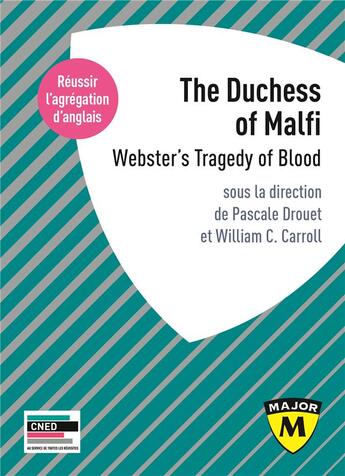Des idées de lecture pour ce début d'année !
Passionné(e) de lecture ? Inscrivez-vous
gratuitement ou connectez-vous pour rejoindre la
communauté et bénéficier de toutes les fonctionnalités du site !

This collection of essays represents new scholarly work on John Webster's great tragedy, The Duchess of Malfi. The critical methodologies range from historical contexts to feminist readings of agency and identity, to social analyses of Jacobean culture. The play has rightly taken its place as one of the greatest of the early modern period, and the Duchess is now seen as one of the great tragic figures of the time-and along with Shakespeare's Cleopatra, one of the most powerful representations of a strong female character in control of her own sexuality and her own destiny. The play also offers an unusual range of villainous characters, from the Duchess's two brothers-the Machiavellian Cardinal and the deranged Ferdinand-to Bosola, who at first seems to be a conventional Vice-like villain. Bosola commits terrible acts in the play, and though he ultimately surrenders to his conscience and tries to do good, this transformation comes too late, and the final set of murders takes place in darkness-an apt symbol of the play's disturbing moral universe.
Il n'y a pas encore de discussion sur ce livre
Soyez le premier à en lancer une !

Des idées de lecture pour ce début d'année !

Si certaines sont impressionnantes et effrayantes, d'autres sont drôles et rassurantes !

A gagner : la BD jeunesse adaptée du classique de Mary Shelley !

Caraïbes, 1492. "Ce sont ceux qui ont posé le pied sur ces terres qui ont amené la barbarie, la torture, la cruauté, la destruction des lieux, la mort..."